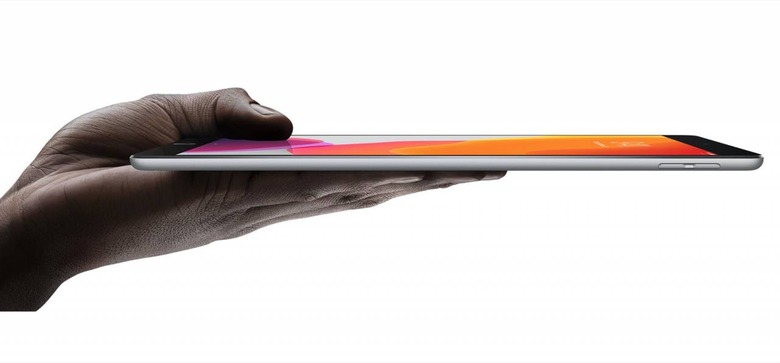2020 iPad Air to use USB-C says supplier but it's not all good news
Apple's cheaper iPads could be getting on of the iPad Pro's most useful features, rumors from the supply chain suggest, with the company set to further retire the Lightning port. When the iPad Pro 11 1st Generation and iPad Pro 12.9 3rd Generation launched in 2018, Apple opted to do away with its own Lightning port in favor of USB-C. Now, that decision could be spreading.
Currently, Apple continues to use the Lightning port on its more affordable tablets. The iPad, iPad Air, and iPad mini all use the familiar connector; that makes them compatible with a whole host of accessories already in Apple's catalog, but it doesn't allow them to work as readily with USB drivers and peripherals, nor the power supplies that come with devices like the MacBook Pro.
The lingering question since 2018 has been when Apple might change that, and bring USB-C to its more affordable tablets. According to new leaks out of Chinese suppliers, we could see the first stages of that as soon as this year. That's believed to start with the new iPad Air 4th Generation in the second half of 2020.
It will switch from Lightning from USB-C, Macotakara reports, quoting an unnamed Chinese supplier. There's speculation that the new iPad Air could be based on features borrowed from the 1st Generation iPad Pro 11-inch, given Apple followed a similar strategy – looking to the iPad Pro 10.5-inch – for the 3rd Generation iPad Air. One challenge will be the Apple Pencil: the current iPad Air is compatible with Apple's first-generation stylus, which charges via Lightning. The second-generation Apple Pencil, which the latest iPad Pro models use, charges wirelessly rather than with a physical port.

It's not all good port news, meanwhile. According to the same sources, though a new iPad mini is in the works, it won't make the same port leap. The 5th Generation of the 8.5-inch tablet is expected to stick with Lightning, unfortunately.
Ports have become increasingly controversial in the iOS ecosystem, particularly with the arrival of iPadOS and Apple's continued attempts to position its tablets as de-facto laptop alternatives. For that, users and critics alike have pointed out, the software and hardware needs to be able to work with the sort of accessories that people are used to plugging into their Windows and macOS notebooks.
The iPad Pro has come closest to that ideal, with latter iterations of iPadOS embracing a more familiar file system that make dealing with external storage, cameras, and other devices more streamlined. In parallel, though, the iPhone team seems intent on doing away with ports altogether. According to the latest batch of rumors, the end-goal for Apple's smartphone is to remove ports altogether, and focus on wireless options instead. That could happen as soon as the 2021 iPhone, it's been suggested.
